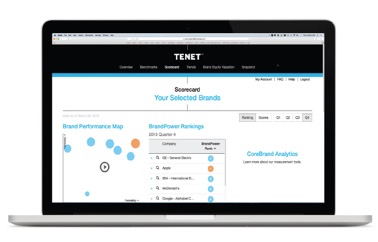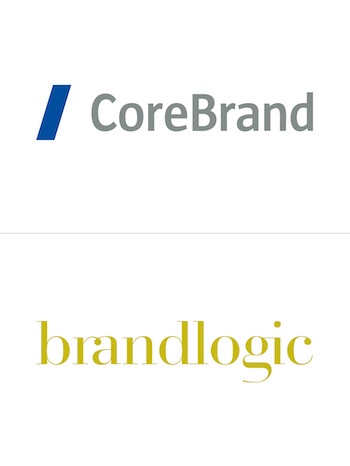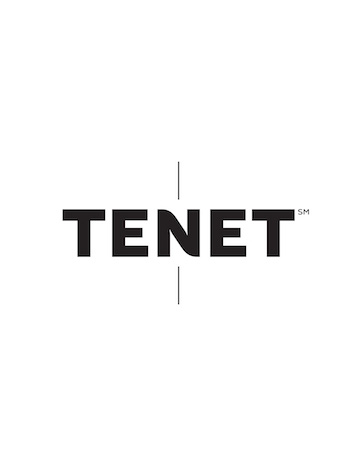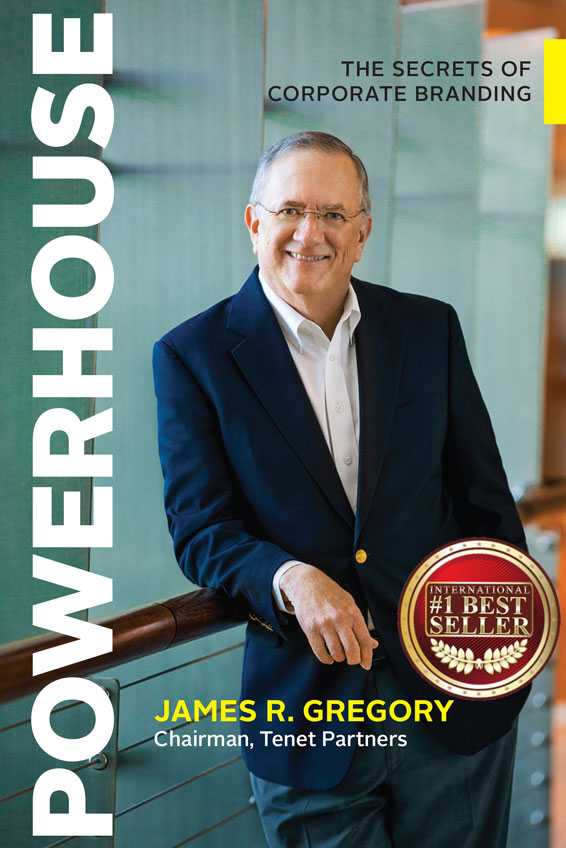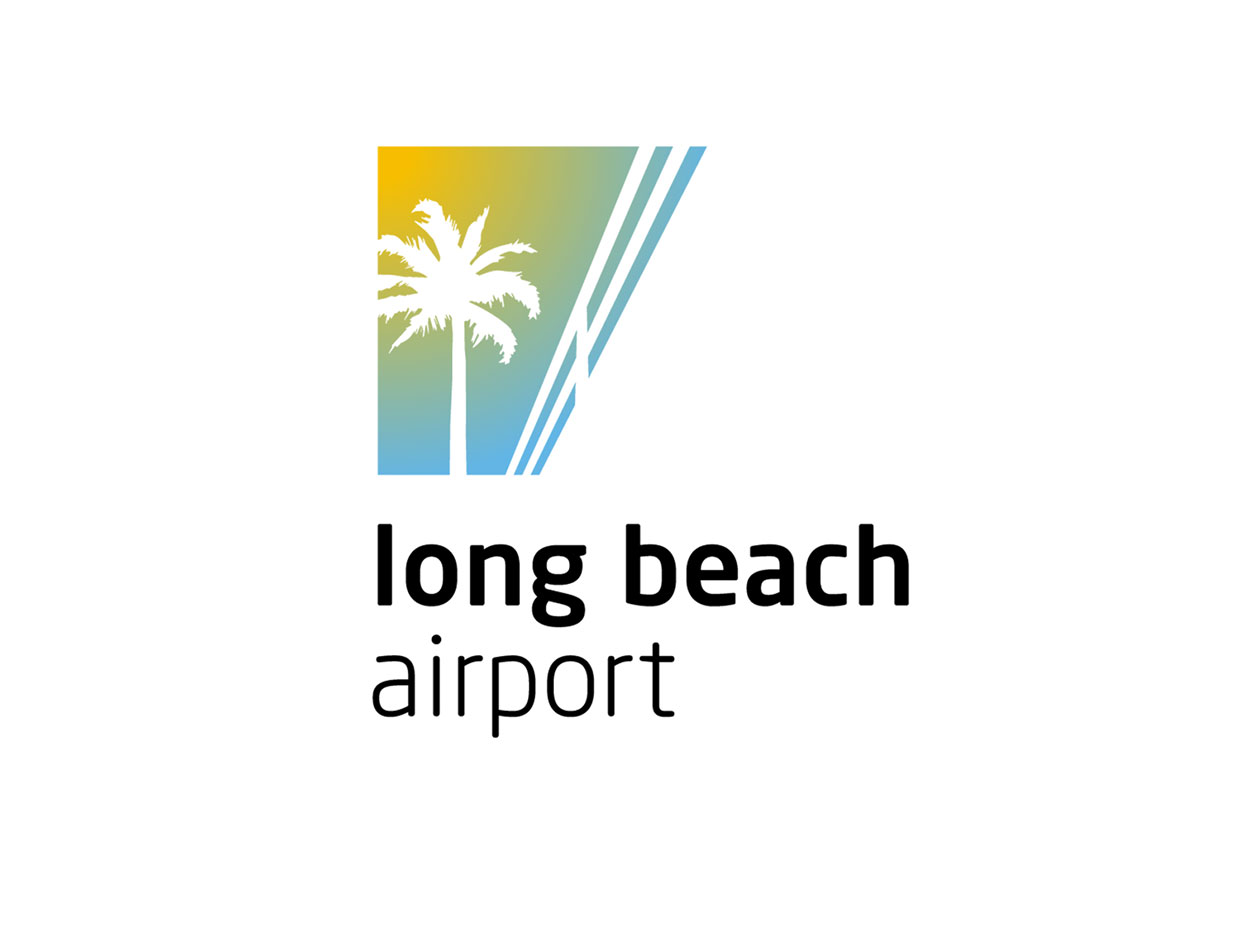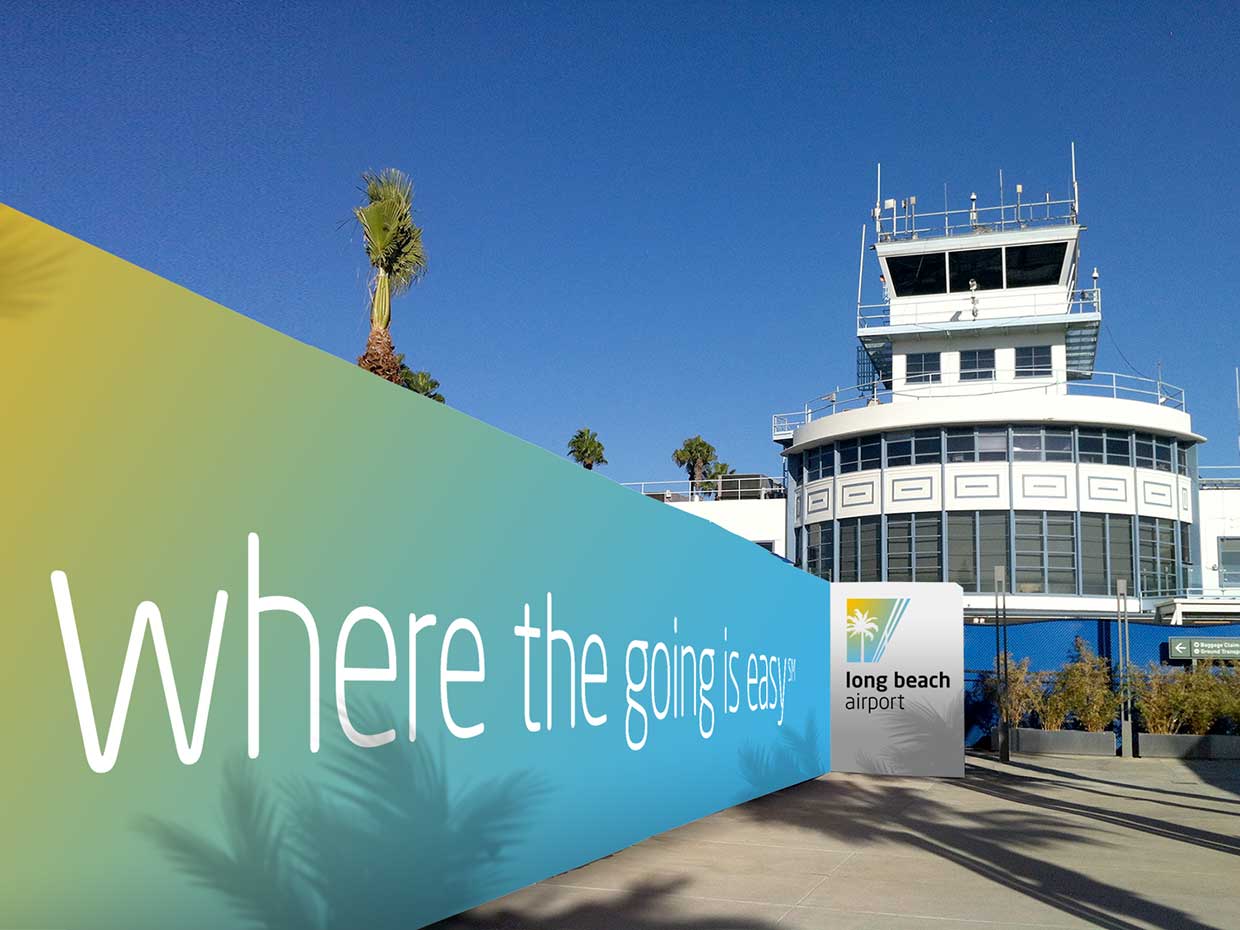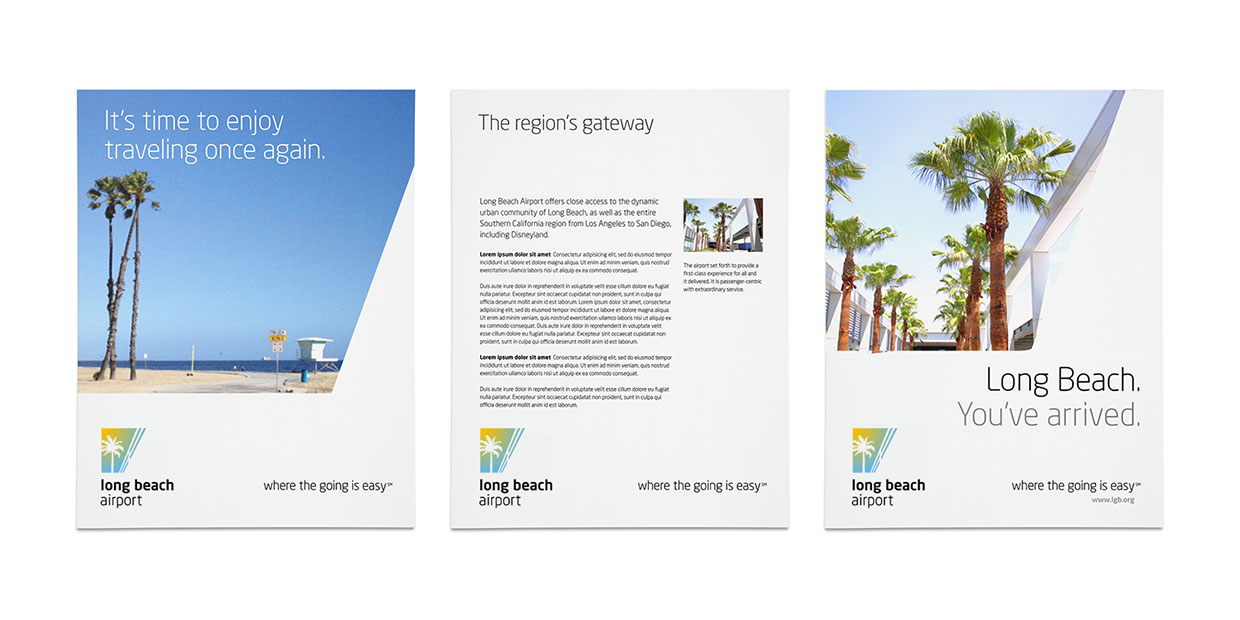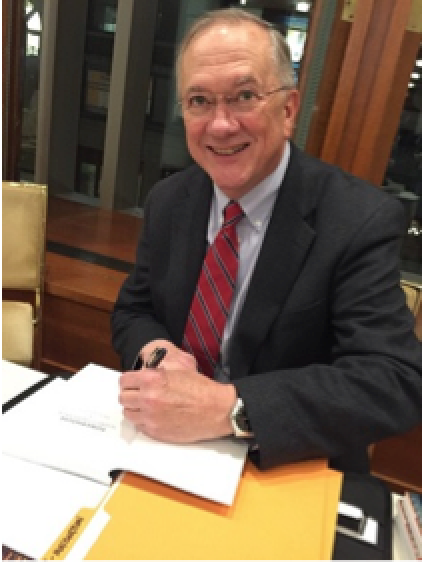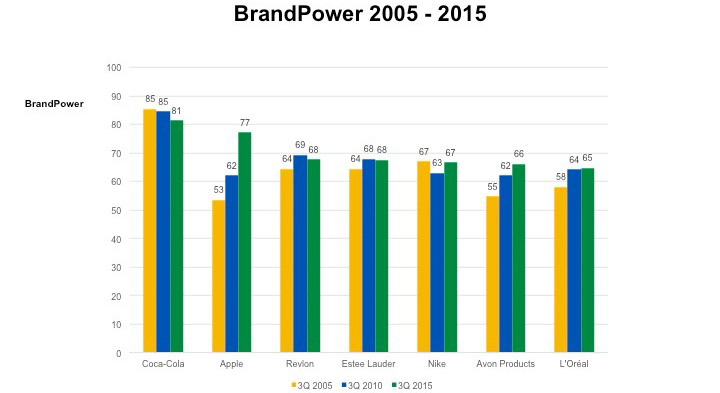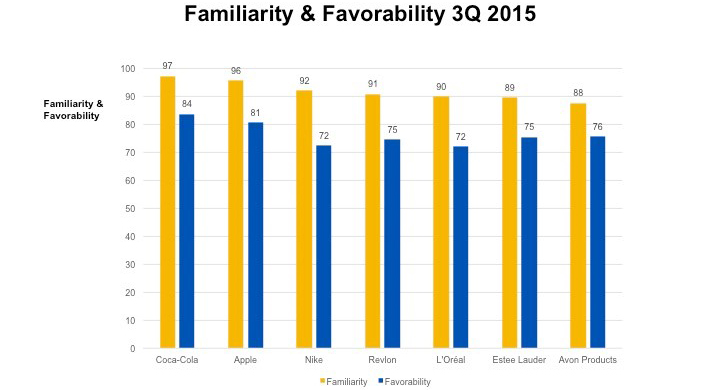New York, NY (July 19, 2016) – Tenet Partners, a leading brand innovation firm, today released its 2016 Top 100 Most Powerful Brands Report. For the ninth year in a row, Coca-Cola claims the top position, Google – Alphabet Inc. enters into the Top 10 for the first time, and Amazon emerges as the ‘top-riser’ increasing 12 positions year-over-year.
Tenet’s Top 100 Most Powerful Brands are ranked in corresponding order by a measure of BrandPower – a single indicator of brand strength that examines a company’s reputation in the marketplace along with its ability to impact business performance. Participants hailing from the top 20% of corporations in the United States (based on revenue) are surveyed on two key metrics that contribute to a brand’s strength: Familiarity and Favorability. Familiarity measures awareness of the brand. Favorability measures the perception of the brand, based on how it performs across three attributes, including Overall Reputation, Perception of Management, and Investment Potential.
Highlights and key findings from this year’s Top 100 Most Powerful Brands Report include:
Microsoft (#6) moves closer to Apple, climbing one spot year-over-year. Johnson & Johnson is the biggest decliner among the Top 10 brands, falling two spots to enter at #8 this year. Five new brands entered this year’s ranking: Samsung (#39), Hilton Hotels & Resorts (#44), Bloomin’ Brands Inc. (#91), Macy’s (#95), and American Airlines (#99).
Top 10
Coca-Cola (#1)
Hershey (#2)
Bayer (#3)
Walt Disney (#4)
Apple (#5)
Microsoft (#6)
PepsiCo (#7)
Johnson & Johnson (#8)
American Express (#9)
Google – Alphabet Corporation (#10)
Top Risers
Amazon (#54, +15)
Bank of America (#68, +12)
Macy’s (#95, +12)
eBay (#29, +11)
Clorox (#47, +11)
Steepest Decliners
Eastman Kodak (#59, -12)
Nintendo (#94, -12)
General Motors (#74, -9)
Walgreens (#41, -8)
Western Union (#84, -8)
Five years of consistent BrandPower growth
Five years ago, the average BrandPower score for the Top 100 was 61.9. This year, the average BrandPower score is 64. 9. This continued resurgence in brand strength indicates favorable brand perception and awareness among consumers, business leaders and other influential audiences.
Consumer Cyclicals dominate the Top 100 ranking
Consumer Cyclicals, or, companies and stocks that reply heavily on the business cycle and economic conditions – such as Automotive, Entertainment, Hospitality and Retail, make up the single largest group among Tenet’s Top 100 Most Powerful Brands, representing 38 companies. Within Consumer Cyclicals, Retail is the most represented industry, with 13 companies hailing from the category. Barnes & Noble, coming in at #32, is the most powerful retail brand, enjoying a 13-point advantage over Target, which retains its #45 position from last year.
Examining the movement of this year’s Top 100 Most Powerful Brands year-over-year, three macro trends emerge that reveal how leading brands are building competitive advantage.
The standout brands of 2016 successfully:
Companies that are staying ahead of the curve are doing so by knowing when and how to launch new business models or transform old ones. For example, GE (#18), perhaps the world’s ultimate industrial conglomerate has been able to evolve and remain relevant over the course of its 130-year history. In 2011, as information-based, ‘smart’ products took over; CEO Jeff Immelt declared that GE needed to become a software and analytics company or risk seeing their hardware products become commodities. In turn, GE invested more than $1 billion to build a software “Center of Excellence” in San Ramon, California – hiring more than 1,000 software engineers and data scientists to provide enhanced software and analytical skills across the company’s many business units.
Drive innovation with clarity of purpose
Breaking into the Top 10 of the Top 100 Most Powerful Brands for the first time, Google (#10) has built a powerful ecosystem of products and services, including Search, Maps, Gmail, YouTube, Drive, and Chrome that have helped to solidify its brand globally. The company’s new holding company, Alphabet was introduced to create greater brand clarity as well as operational efficiency, separating Google’s core business from its innovative initiatives. Larry Page’s letter to investors and employees announcing the reorganization demonstrated that it has a clear understanding of the ingredients of its success, the core of their brands, and how it will continue to drive future brand innovation.
Deliver stellar customer experiences
Lowe’s (#48) brings value to their brand by developing innovative marketing ideas to outpace the competition. Through their ‘Innovation Lab,’ Lowe’s developed the latest in Augmented Reality in the form of an app. Through a computer-generated model of a real-world environment (such as a specific room in a house), a customer can design their virtual room with Lowe’s products (countertops, furniture, lighting, fixtures, paint colors, etc.) and then walk through one of Lowe’s ‘HoloRooms’ – an actual 20×20 dedicated space in the store, and experience a 3-D model of their designed room.
“The Top 100 Most Powerful Brands are redefining themselves to remain relevant,” said Hampton Bridwell, CEO of Tenet Partners. “In this age of disruption, they are successfully aligning their business and brand strategy, creating clarity in the marketplace, and winning the customer loyalty battle by delivering consistent results and outstanding customer experiences.”
About Tenet Partners’ Top 100 Most Powerful Brands
Tenet Partners derives its annual Top 100 Most Powerful Brands from its quantitative database – the CoreBrand® Index (CBI) – the results from continuous benchmark tracking via surveys of nearly 1,000 different companies across 50 industries for over 25 years. Each year, we survey approximately ten thousand influential decision makers on two key brand metrics: Familiarity and Favorability. Familiarity measures awareness of the brand. Favorability measures the perception of the brand, based on how it performs across three attributes: Overall Reputation, Perception of Management, and Investment Potential.
These quantitative metrics, Familiarity and Favorability, are then combined into a composite score called BrandPower – a standard measure that can be used to objectively compare brands both within and across industries. BrandPower is a predictive driver that a company can manage – through increased communication, product innovation, service development and so forth, to ultimately increase its brand value over time. It is for this reason that Tenet’s Top 100 Most Powerful Brands are ranked by an objective BrandPower score, and not on the basis of bran value.
The brands listed on the Tenet Top 100 Most Powerful Brands ranking must meet several criteria to be considered. The must be: A corporate brand (not a product or divisional brand), publicly traded in the U.S. and tracked in CoreBrand Index (CBI) for 5+ years.
Top 100 Most Powerful Brands Website
Please visit the 2016 Top 100 Most Powerful Brands website to read the report in full. To join the conversation on social media, use the hashtag #MPB100.
About Tenet Partners
Tenet Partners is a brand innovation firm that transforms organizations through a fusion of research, strategy, design and technology. Our mission is to help companies create brand value and unlock real-time solutions and possibilities in today’s digital, customer-driven world.
For more information, please contact:
Russ Napolitano
Chief Operating Officer
Tenet Partners
+ 1 212 329-3035
rnapolitano@tenetpartners.com
